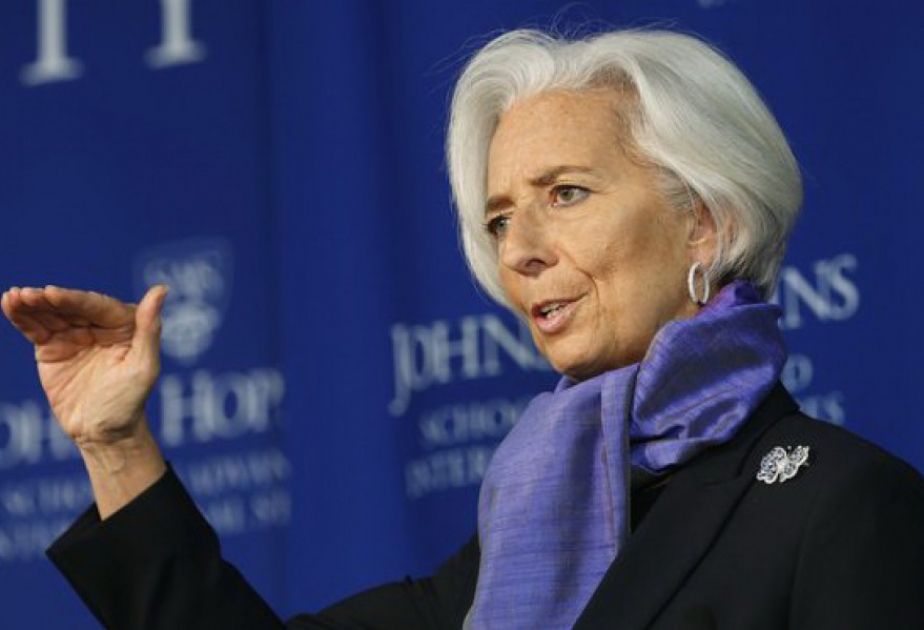|
|
TODAY.AZ / Business
Azerbaijan towards digitalisation: bitcoin or CBDC? [ANALYSIS]
28 November 2023 [08:30] - TODAY.AZ
 By Azernews
By AzernewsWith the development of the 4th industrial revolution and its implementation, enormous changes are taking place at all levels of the systems. Technology is subject to change and renewal, and the day is not far off when paper money will be replaced by digital money.

The key element of the traditional economy that the anonymous creator of Bitcoin wanted to fix was money. In the modern world, national currencies, or fiat money, are printed by governments. They are also a centralized structure with known flaws. First of all, the value of money is determined by the actions and credibility of the issuer. In addition, fiat money is subject to constant inflation, i.e. depreciation.
Bitcoin is a decentralized system that operates on a software protocol and is based on the principle of direct exchange between users. It works without the involvement of any regulatory body or central bank, issuing coins and processing transactions is done collectively by the participants of the network. Thus, no one can control Bitcoin, block or cancel a transaction. However, anyone can join the network, use it for transfers, or develop Bitcoin code.
After a meteoric rise on October 12 from $26,750 to $34,667 on October 31, the price of bitcoin (BTC) has not stopped moving upwards. On the day Grayscale Investments met with the SEC about a bitcoin-ETF application, BTC rose from $36,500 to multi-day support at $37,400.
Can Bitcoin ever replace paper money in Azerbaijan?
Today, in the global re-farming of the world and implementation of the 4th industrial revolution, technocrats, elites, and big companies of the West, attach significance to the introduction and creation of a centralised system of one Bank with a single currency for all in digital form at the global, world level. The introduction of digital currency has become very important after the emergence of Bitcoin. Western countries are a great example of how digital currency adoption will be handled in social and industrial circles. The European Union and its countries have already released a ready-made digitalisation system called CBDC.

Bitcoin will not replace paper money in Azerbaijan, as its transition marks a systemic reformation and consideration of the needs and requirements of society and the state, but there is a possibility that a digital currency like Bitcoin or CBDC will be introduced soon.
According to Taleh Kazimov, Chairman of the Board of the regulator, the Azerbaijani Central Bank has all the possibilities to introduce digital manat. Its introduction is hampered by the fact that the impact of digital currencies on financial stability and monetary policy has not been fully researched. Azerbaijan is studying by observing other countries with digital currencies.
"Of course, digital currency has certain risks that can affect the economy, including requiring a large number of electronic resources. It is encouraging that the Central Bank has all the resources and opportunities to introduce the digital manat, however, we are focused on modernizing and optimising the national payment system, and then we will start introducing innovations"
Why bitcoin is not very recognisable in Azerbaijan?
Informativeness, social prosperity, and self-education, their importance in balancing will give knowledge to society in the use of technological and social benefits, and it is also significant for the state in preparing society for the transition to a common system of digitalisation.
In Azerbaijan, more than 90 percent of money turnover is still in cash. The use of payment bank cards in the country and its issuance to date there are about 9.4 million cards. A significant part of the population in the country uses cards for cashing in or out. Although the turnover of online commerce has also increased slightly during the pandemic, it remains very low overall.
Older and younger generations have a lack of understanding of the issue, reducing their informativeness. A possible approach is to educate and introduce it through tourism and immigration policies. Technological breakthroughs, as important for the realisation and implementation of a centralised digital currency system. A base for storing, processing, and transmitting data and its speed, are important attributes for the realisation of the task at hand.
Can Bitcoin ever gain dominance over the world's currencies?
Leading up to the global events taking place in the world, great importance is being placed on technological advances in implementing the agenda of the new world government. The Middle East war as the Russian-Ukrainian war continued to create problems in the supply of commodity turnover. France's withdrawal from Africa left a trail of continuing waves of problems and reforms. Africa was the first to introduce the digital currency CBDC.
It is now becoming increasingly clear that Bitcoin can be a creation of individuals, and was launched as a 'normalisation' experiment to introduce the public to digital currency. Once this stage is passed, the fiat currencies of the world will be destroyed in a planned debt crash and then replaced by a government-approved cryptocurrency with all transactions and digital wallets tracked by the Western governments of the world.
Last year there was a collapse in cryptocurrency prices.
"Mass panic" causes a $1 trillion collapse in cryptocurrency prices and a warning of a "short squeeze" after FTX's FTT goes into freefall, dragging Bitcoin, Ethereum, BNB, XRP, Solana, Cardano and Dogecoin with it. Bitcoin, Ethereum, and other major cryptocurrencies fell sharply this week, taking billions of dollars out of the entire cryptocurrency market and pushing it below the long-awaited $1 trillion mark."

During a recent European Parliament hearing, Christine Lagarde, president of the European Central Bank, said that the digital euro would not have the anonymity of cash, and then dismissed concerns that the government would use the digital euro to control what people can buy as a "conspiracy theory."
Lagarde has previously acknowledged that privacy is one of the main reasons for Europeans' concerns about the proposed European Union digital currency (CBDC), the digital euro. Despite this admission, she continues to insist that there will be no anonymity for users of digital euros and that they will never become as private as cash.
"Privacy is protected," Lagarde said. "Not anonymity, but privacy. And we can address all the conspiracy theories that exist about this as if Big Brother is going to determine what you buy when you buy it, and how it should be restricted."
Nigeria, with a population of over two hundred million people, has become the first serious global test bed for the introduction of central bank digital currencies (CBDC).
On October 25, 2022, a year after a nationwide referendum on the creation of CBDC in Nigeria in which 99.5% of citizens voted against the digitalisation of the currency, then President Muhammadu Buhari issued a decree that despite opposition from the majority of the nation, the financial revolution would happen anyway.

In December 2022, the Abuja government launched an all-out attack on cash. On 10 February 2023, about 80% of the $7.2 billion previously in private hands was in CBDC digital accounts, the poorer part of the population (more than half of the people) still had no bank accounts. Half the country was left with old, worthless banknotes.
On 16 February 2023, violent riots broke out in the country, resulting in casualties. Stripped of all their wealth, desperate and hungry people took to the streets demanding the restoration of paper money.
By the end of January 2023, transactions using the eNaira digital currency were running smoothly but were limited to the middle class - only about thirty-five to forty million people.
The problem was that the new money was nowhere to be found. Even today, when the central bank withdrew from the experiment, the supply of new cash did not even reach ten percent of Nigeria's total money supply.
Nigerians could not understand how the government planned to eliminate existing cash and issue new money just weeks before the general elections slated for 24 February 2023.
The situation of uncertainty and danger persisted for three and a half months until the inauguration of the new president, Bola Ahmed Tinubu, the former civilian governor of Lagos State. On 29 May 2023, about 108 days after the virtual elimination of cash, Tinubu reinstated the old currency, as well as the new eNaira and electronic eNaira.
What made him take this step? Was it influenced by the experiment's overseers from the IMF, the US Fed, or the WEF?
Today the specialists of the Central Bank of Azerbaijan monitor the key trends in this sphere and study the best practices of leading international organisations and other countries, in particular, they actively cooperate with the Central Bank of Turkiye for further implementation of the most optimal mechanisms in Azerbaijan.
URL: http://www.today.az/news/business/241827.html
 Print version
Print version
Connect with us. Get latest news and updates.
See Also
- 21 April 2025 [14:17]
Vienna hosts COP29 Conference on green energy and sustainability - 21 April 2025 [13:34]
AzInTelecom launches SIMA KYC video recording for remote ID verification - 18 April 2025 [19:40]
Smart Customs app surpasses 2 Million users - 18 April 2025 [14:36]
4SIM signs MoUs with Chinese institutions to boost cooperation in green and industrial technologies - 18 April 2025 [13:39]
Azerbaijan, Uzbekistan mull boosting investment and business partnerships - 18 April 2025 [13:25]
Azerbaijan-Slovenia business forum highlights growing economic ties and joint investment prospects - 18 April 2025 [11:45]
Turkish president approves Azerbaijan-Türkiye natural gas cooperation agreement - 17 April 2025 [14:39]
Central Bank joins myGov for easier public access to services - 17 April 2025 [13:18]
ASCO’s Khojaly vessel enters Indian Ocean for 1st time - 17 April 2025 [12:41]
New amendments reduce taxes for people with disabilities in Azerbaijan
Most Popular
 What von der Leyen doesn't know about. Or doesn't want to know
What von der Leyen doesn't know about. Or doesn't want to know
 Turkish auto sector shifts gears for green transformation
Turkish auto sector shifts gears for green transformation
 Bayramov: Direct talks yield better results than mediated dialogue
Bayramov: Direct talks yield better results than mediated dialogue
 Japan grants $3 billion loan to Ukraine using profits from frozen Russian assets
Japan grants $3 billion loan to Ukraine using profits from frozen Russian assets
 Baku spends over 1 billion manats on education in Q1
Baku spends over 1 billion manats on education in Q1
 America’s tariff strategy risks fragmenting global economy
America’s tariff strategy risks fragmenting global economy
 At least 148 dead after boat accident on DR Congo river
At least 148 dead after boat accident on DR Congo river
